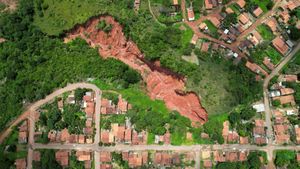Myanmar has increasingly become known for its rising crime levels, particularly involving criminal organizations operating from the notorious KK Park, located at the border with Thailand. This area has attracted rising attention not only for its illegal dealings but also for reports of Japanese nationals being held against their will.
The KK Park region is notorious for its lawlessness, and recent testimonies suggest more troubling activities are occurring. Local residents have reported seeing Japanese people within these borders, hinting at the alarming potential hostage situations. A woman who formerly transported goods across the Thai-Myanmar border recounted, "There are many who have seen Japanese individuals there; they looked fair-skinned and beautiful." Such observations raise serious concerns about the safety of foreign nationals, especially those from Japan, as unscrupulous criminal groups stretch their networks and prey upon vulnerable individuals.
According to experts, the criminality observed at KK Park is unprecedented. Associate Professor Hideyuki Okano from Kinki University stated, "What we have seen is unprecedented criminal activity at the Myanmar border; local conditions have attracted crime." This comment underlines the fact many armed groups, some of which have formed alliances with the Myanmar government, control various territories. The economic situation has significantly deteriorated, allowing these armed forces to operate freely.
With the government appearing unable—or unwilling—to maintain order, regions such as KK Park have become havens for criminal enterprises. The once-thriving economic zones, initially established to promote trade and investment, have regressed to lawless territories following political instability. Reports indicate these areas now serve as operational grounds for organized crime syndicates, possibly including Chinese factions attracted by prospects for lucrative illegal activities.
Recent data highlights troubling trends, with reports of many individuals detained under suspicious circumstances, including at least 50 Chinese nationals reported detained for unclear reasons, alongside individuals from Ethiopia and Bangladesh who shared harrowing experiences of prolonged captivity. The deterioration of civic order has allowed various ethnic groups and organized criminals to exploit those trapped by their dire circumstances.
On the international front, these alarming developments have prompted calls for action from the Japanese government, which is facing pressure to address the safety of its citizens abroad. The rise of criminal activities targeting foreigners needs serious attention and response to protect individuals who may find themselves ensnared within such dangerous environments.
Investigations by local authorities and international watchdog organizations continue to shed light on the regional security crisis. Witnesses who have fled from these conditions are stepping forward, sharing their harrowing accounts of exploitation and abuse, with increasing demands for intervention and support.
The situation remains fluid, and the involvement of multiple nations may soon be necessary as the scale of human rights violations grows. Governmental agencies on both sides are urged to intensify their efforts to regulate cross-border activities more effectively. The potential for international ramifications highlighted by these troubling developments requires immediate and decisive action.
Criminal organizations operating from KK Park reflect broader trends of instability and lawlessness, overshadowing Myanmar's international reputation. The calls for reparative action and reform are louder than ever, but whether tangible changes occur remains to be seen.



